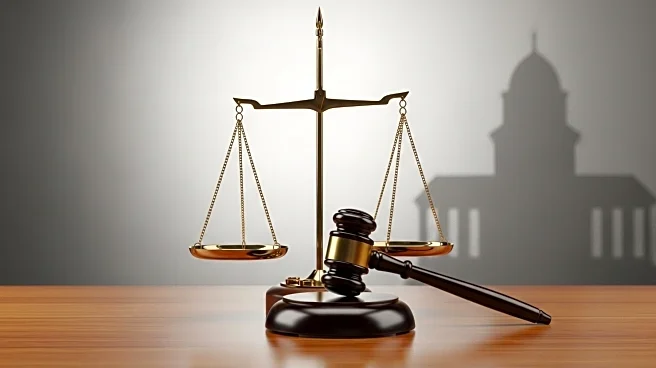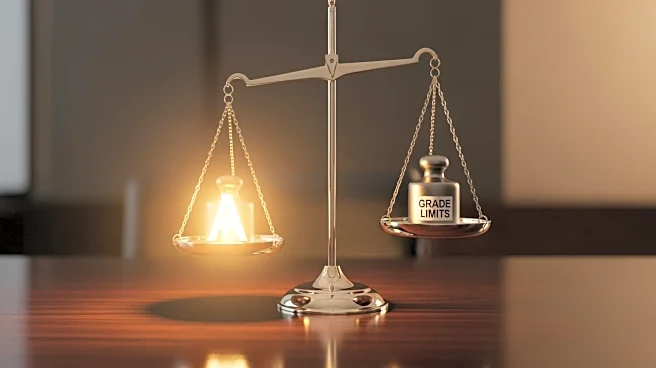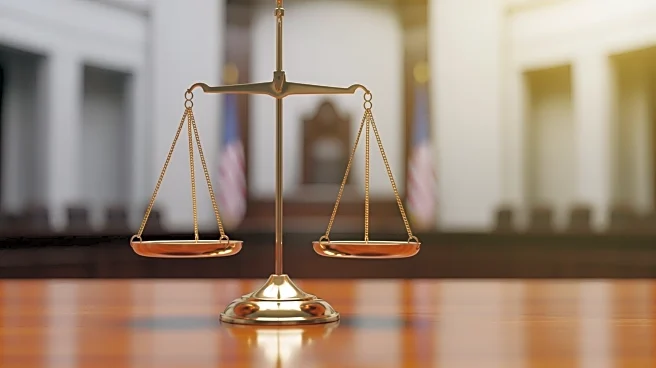What is the story about?
What's Happening?
President Trump has signed executive orders aimed at eliminating 'cashless bail' policies in Washington, DC, and across the United States. These policies, which have been adopted in various states, replace the traditional money-based bail system with alternatives focused on public safety and defendant rights. Advocates argue that cashless bail prevents the unjust detention of individuals based on their financial status, while opponents claim it leads to a revolving door of repeat offenders. Trump's orders threaten to withhold federal funding from jurisdictions that have substantially eliminated cash bail, asserting that such policies waste public resources and endanger public safety.
Why It's Important?
The move to end cashless bail has significant implications for the criminal justice system and public policy. Critics of cashless bail argue that it ties the hands of judges and contributes to increased crime rates by allowing repeat offenders to be released without monetary deterrents. On the other hand, supporters believe that eliminating cash bail promotes fairness and prevents the incarceration of individuals solely due to their inability to pay. Trump's actions could lead to a shift in how pre-trial detentions are handled, impacting both state and federal jurisdictions. The debate highlights the tension between public safety concerns and the push for criminal justice reform.
What's Next?
The executive orders require Attorney General Pam Bondi to identify jurisdictions that have eliminated cash bail within 30 days, potentially affecting their federal funding. This could prompt states to reconsider their bail reform policies or face financial repercussions. The orders may also lead to legal challenges from states and advocacy groups defending cashless bail as a necessary reform. As the debate continues, stakeholders including lawmakers, law enforcement, and civil rights organizations will likely weigh in on the future of bail reform in the U.S.
Beyond the Headlines
The broader implications of Trump's actions touch on ethical and legal dimensions of the justice system. The cash bail system has been criticized for perpetuating inequality, as wealthier individuals can afford to avoid pre-trial detention, while poorer defendants remain incarcerated. The push to revert to traditional bail practices raises questions about the balance between ensuring public safety and upholding the rights of the accused. Long-term shifts in public policy may emerge as the nation grapples with these complex issues.














